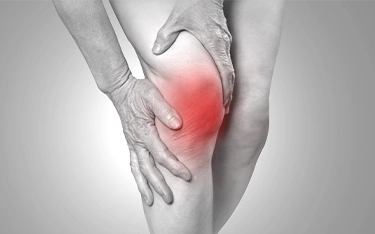A breakup can feel like your world has shattered, bringing heartache, sleepless nights, and spiralling thoughts. It’s more than emotional pain; it can trigger serious mental health struggles.
A pivotal study found that among individuals experiencing a breakup within the past six months, 26.8% reported mild-to-severe depression, significantly higher than those still in relationships.This shows how breakups can spark real depressive symptoms, especially early on.
This period of “depression after break up” is critical. The intense emotional discomfort and intrusive memories can spiral into breakup depression, making self-care essential to recovery.
Let's explore the top 10’s and Don’ts to help you move on from an ex with emotional resilience.
Why Emotions Run Deep After a Split
A breakup is not just the separation of a person. It is the sudden disruption of emotional safety, shared routines, and future dreams.
- Attachment disruption triggers grief-like responses similar to mourning a death.
- Loss of routine, conversations, and comfort creates emotional instability and loneliness.
- Negative self-talk and regret often amplify feelings of worthlessness and hopelessness.
These emotional waves can feel overwhelming, especially when your brain is still wired for connection. Healing requires time, patience, and the right support.
Dr Batra’s® Case Study Highlights
A patient enrolled in our MindFit Specialised & Personalised Program for anxiety and stress. Under the doctor’s guidance and regular follow-up, they feel energetic, positive, and in control
10 Do’s to Help You Heal
- Acknowledge your feelings
Permit yourself to feel pain, sadness, or even anger; it is a natural part of grieving and suppressing emotions only delays healing.
- Talk to friends and family
Speaking to loved ones offers comfort, perspective, and emotional release. It reminds you that you are not alone.
- Give yourself some space
Distance from your ex helps break emotional dependence and allows clarity. No-contact isn’t cruelty, it’s self-care.
- Stay physically active
Exercise triggers the release of endorphins—your brain’s natural antidepressants. Even a walk can lift your mood.
- Journal your thoughts
Writing your feelings helps declutter your mind and understand your emotional patterns. It’s like therapy on paper.
- Pursue hobbies or passions
Engaging in activities you love can restore joy and purpose. It also shifts focus from pain to progress.
- Establish a daily routine
Routines create structure during emotional chaos. Regular meals, sleep, and self-care rebuild stability.
- Set small daily goals
Achieving even tiny tasks boosts self-worth. Progress, not perfection, is the path forward.
- Practice mindfulness
Meditation, deep breathing, or yoga can help quiet the mind and reduce anxiety. Staying present eases overthinking.
- Turn the breakup into a lesson
Reflecting on what the relationship taught you builds emotional maturity. It helps you grow instead of crumble.
10 Don’ts to Avoid Prolonged Pain
- Don’t be hard on yourself or your ex
Blame only prolongs bitterness. Compassion towards yourself and others is key to moving on.
- Don’t rush into a rebound
Filling the void with someone new often leads to more profound confusion. Healing takes time and intention.
- Avoid ‘break-up sex’
It reignites emotional dependency and hinders closure. Physical closeness doesn’t resolve emotional wounds.
- Don’t fake it with friends-with-benefits
Casual intimacy can mask pain, not cure it. Emotional healing demands honesty, not distraction.
- Stay away from alcohol or drugs
These offer short-term escape but long-term damage. They often worsen depression and create unhealthy coping.
- Don’t stalk your ex online
Watching their life post-breakup keeps you emotionally tied. Unfollowing is not immature, it’s protecting your peace.
- Avoid isolating yourself
While solitude can feel safe, it may feed loneliness. Connect with people who uplift you.
- Don’t suppress emotions
Unexpressed grief can show up later as anxiety, anger, or depression. Allow yourself to feel.
- Don’t make big life decisions right away
Avoid quitting jobs, moving cities, or other impulsive acts. Let your emotions settle first.
- Don’t skip professional help
If the sadness lingers or disrupts daily life, therapy or holistic care like homeopathy can offer real relief.
How Nutrition & Routine Can Help
Breakups can disrupt your daily habits, but restoring balance through food and routine plays a vital role in emotional recovery.
- Follow a regular daily routine to bring stability during emotional highs and lows.
- Eat balanced meals with whole grains, proteins, and healthy fats to support brain function.
- Stay hydrated to reduce fatigue and improve mental clarity.
- Get 7–8 hours of quality sleep each night to regulate mood and stress.
- Include foods rich in omega-3s, vitamin D, and B-vitamins to reduce anxiety and boost emotional well-being.
- Eat on time and step into sunlight regularly to naturally lift your mood.
Dr Batra’s® pro tip:
Don’t skip meals or overdo caffeine after a breakup, both can worsen mood swings and anxiety. Stay hydrated, eat balanced meals, and prioritise sleep for emotional recovery.
Dealing with Mood Swings & Sleep Issues
Breakups often disrupt sleep and mood. To manage this:
- Sleep hygiene: Stick to fixed sleep hours and avoid screens before bed.
- Coping tools: Try deep breathing, herbal teas, or guided meditations.
- Mood tracking: Use a journal or app to spot emotional patterns and triggers.
Small, consistent habits can make a big difference in how you feel.




